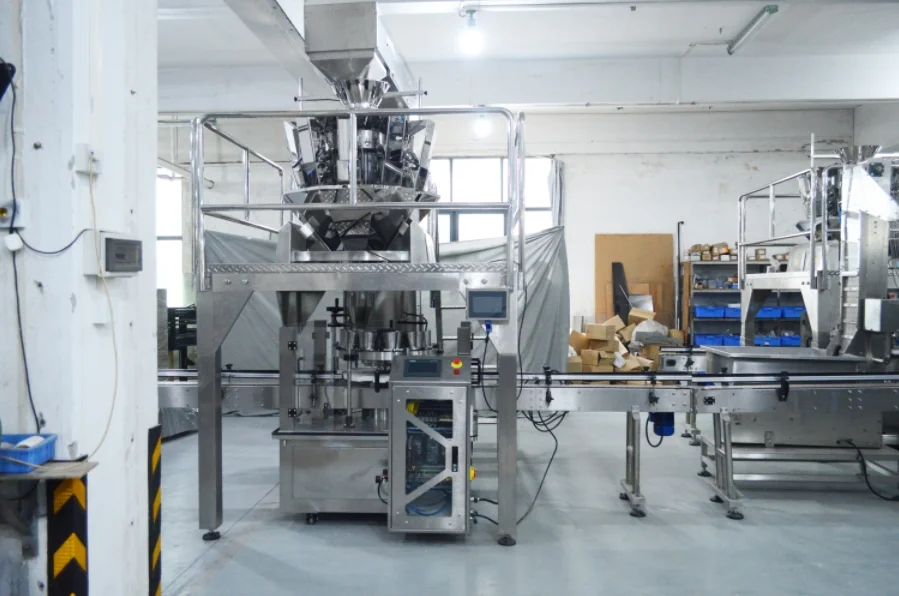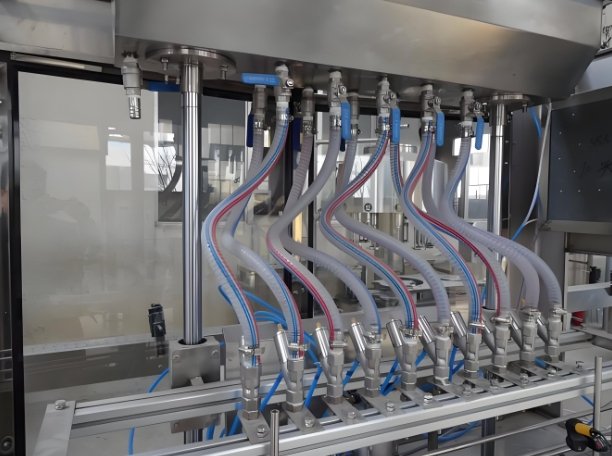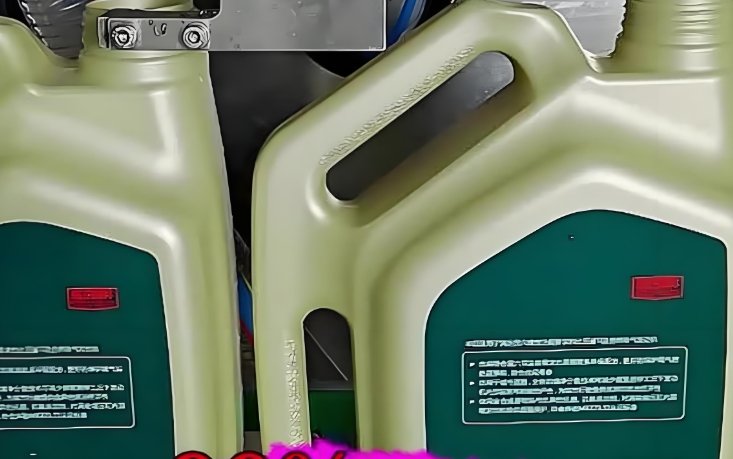
Introduction
In modern packaging, efficiency and precision are critical. A granule filling machine is designed to deliver both, ensuring accurate measurement and packaging of products like rice, sugar, spices, nuts, seeds, and pharmaceuticals. Whether you choose an automatic granule filling machine or a semi-automatic granule filling machine, these systems streamline production, reduce waste, and improve consistency. By investing in an industrial granule filler, businesses benefit from faster operations, reduced costs, and higher customer satisfaction.
For companies looking to automate different stages of their production line, combining granule fillers with a carton packaging machine or a palletizing packaging machine ensures smooth end-to-end operations.
Why Use a Granule Filling Machine?
Precision and Accuracy
Packaging granules by hand often leads to inconsistencies. A precision filling machine for granules ensures every pack contains the exact weight, which is essential for compliance and customer trust.
Efficiency in Production
A granule packaging machine speeds up the filling process. For example, a high-speed granule weighing and filling system can fill hundreds of packets per hour, drastically improving efficiency for food and manufacturing industries.
When paired with a shrink wrap packaging machine, granule products also gain extra protection during shipping and storage.
Reduced Material Waste
Accurate dosing reduces product loss and prevents overfilling, which saves money in the long run.
Types of Granule Filling Machines
Automatic Granule Filling Machine
An automatic granule filling machine is best for large-scale production. It integrates weighing, filling, and sealing, offering unmatched speed and consistency. These machines are widely used in food packaging, pharmaceuticals, and agriculture.
Semi-Automatic Granule Filling Machine
For small and medium-sized businesses, a semi-automatic granule filling machine provides cost-effective automation. Operators can manage filling while maintaining a balance between manual control and automated accuracy.
Granule Weighing and Filling Machine
A granule weighing and filling machine combines advanced sensors with filling technology to ensure accuracy. It is particularly useful for products where weight compliance is essential, such as packaged spices and pharmaceuticals.
Industrial Granule Filler
An industrial granule filler is built for heavy-duty operations. Whether for large food factories or chemical plants, these machines handle bulk quantities with high durability and low downtime.
Applications Across Industries
Food and Beverage
The best automatic granule filling machine for food packaging is used to fill rice, pulses, sugar, tea, coffee, snacks, and spices. With hygiene and accuracy as top priorities, food manufacturers rely heavily on automation.
Pharmaceuticals
Granule fillers are used for medicine powders and capsules where precision is critical for safety and compliance.
Agriculture
Seeds, fertilizers, and animal feed require accurate filling to ensure consistency in packaging and distribution.
Chemicals and Industrial Goods
Powders, detergents, and other granular chemicals are packaged using industrial granule filling machines for small and large businesses, ensuring safe and efficient handling.
Benefits of Granule Filling Machines
- Improved Accuracy: Ensures consistent weight and quantity.
- Higher Productivity: Automatic granule filling machines speed up production lines.
- Cost Efficiency: Reduces labor needs and prevents product loss.
- Flexibility: Machines adapt to different granule sizes and packaging types.
- Compliance: Meets industry standards for weight and hygiene.
According to Packaging Digest, businesses adopting automated filling solutions report significant improvements in accuracy and reductions in product waste.
For businesses seeking complete packaging lines, pairing granule fillers with a wrapping packaging machine can further improve efficiency.
How Granule Packaging Machines Improve Accuracy and Efficiency
Granule packaging machines use load cells, electronic sensors, and PLC (Programmable Logic Controller) systems to deliver consistent results. This technology minimizes errors and maximizes throughput, ensuring businesses can meet both small and bulk packaging demands.
Example: Granule Filling Machine Price and Specifications
The granule filling machine price and specifications vary based on capacity, automation level, and features.
- Semi-automatic models are affordable and suitable for startups.
- Automatic models come at a higher price but deliver faster ROI through labor and material savings.
Final Thoughts
A granule filling machine is an indispensable tool for businesses dealing with granular products. From food and pharmaceuticals to agriculture and chemicals, these machines provide the accuracy, speed, and reliability needed in modern packaging. Whether choosing a semi-automatic granule filling machine for a small business or an industrial granule filler for large-scale operations, investing in automation leads to long-term efficiency and customer satisfaction.
Frequently Asked Questions (FAQs)
- What is a granule filling machine used for?
It is used to accurately measure and package granular products like rice, sugar, seeds, and powders into bags, pouches, or bottles. - What industries benefit most from granule filling machines?
Food, pharmaceuticals, agriculture, and chemicals rely on granule packaging machines for precision and efficiency. - How much does a granule filling machine cost?
The granule filling machine price and specifications depend on automation level, capacity, and features. Semi-automatic machines are cost-effective, while automatic models are suited for large-scale operations. - What is the difference between automatic and semi-automatic granule filling machines?
Automatic machines run independently with high speed, while semi-automatic machines require partial operator input, offering flexibility at a lower cost.






